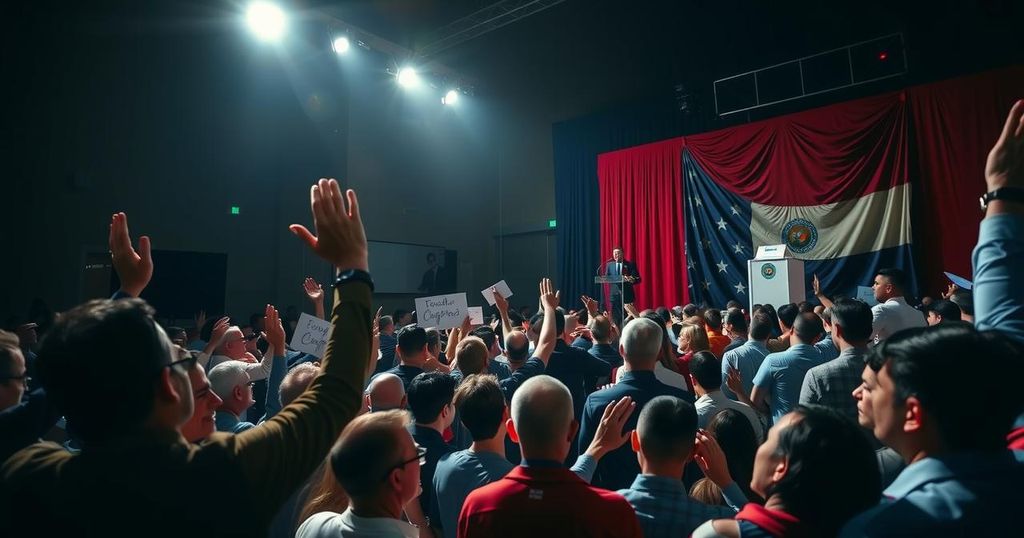Uruguay’s Presidential Runoff: A Pivotal Election in a Competitive Landscape

Uruguay’s presidential runoff pits Álvaro Delgado against Yamandú Orsi in a closely contested election. After the first round, with Delgado at 27% and Orsi at 44%, voter indecision remains high. Both candidates grapple with issues like economic policy and rising crime rates as they seek to sway an undecided electorate ahead of polling day.
Uruguay is poised for a pivotal second round of presidential elections, with voters returning to the polls amid a highly competitive atmosphere. The incumbent conservative governing party, represented by Álvaro Delgado, is facing off against Yamandú Orsi from the left-wing Broad Front coalition. This runoff follows a first-round vote where the Broad Front secured 44% compared to the National Party’s 27%. Notably, support from other conservative parties may grant Delgado a strategic advantage in this tight electoral race.
Delgado, 55 years old and a veterinarian by trade, has pledged to uphold the fiscal policies of outgoing President Luis Lacalle Pou, under whom he served as Secretary of the Presidency. His campaign has markedly emphasized the continuation of effective governance through his slogan, “re-elect a good government.” Conversely, Orsi, 57, who has a history as a teacher and former mayor, seeks to galvanize voters with aspirations for a new direction in leftist governance and economic revitalization.
Significant voter indecision underscores this election, with nearly 10% of the electorate still undecided. Analysts attribute this phenomenon to lackluster campaigning and a perceived consensus on pressing issues, including social spending and crime rates. Despite a rise in violent crime, both candidates strive to address public safety concerns while navigating complex economic landscapes.
The social policies introduced by the Broad Front during their previous governance—including the legalization of abortion, same-sex marriage, and marijuana sales—continue to resonate with many voters, complicating the electoral dynamics. Moreover, sentiments regarding corruption scandals in past administrations may further influence public attitude toward the incumbent party.
This election is reflective of Uruguay’s stable democratic practices, unlike many regions experiencing political turmoil. As candidate debates continue, the focus remains on economic strategies, social justice reforms, and legacy considerations from preceding administrations. Ultimately, the outcome on Sunday will significantly shape Uruguay’s future political landscape.
Uruguay has undergone a unique political shift leading to its current electoral scenario. Historically regarded as stable and safe, the nation has witnessed fluctuations in party governance, moving from long-standing leftist leadership to a recent conservative administration. The electoral process has intensified as citizens face crucial decisions regarding economic policies, social reforms, and public safety. The current elections are not merely a referendum on candidates but also reflect the evolving political sentiments of the Uruguay populace amid changing governance dynamics.
In conclusion, Uruguay’s impending presidential runoff epitomizes a critical juncture in the nation’s political narrative, marked by voter indecision and contrasting campaign strategies. The election showcases the electorate’s desire for continuity versus change, with both candidates addressing pressing issues of governance and public safety. As this competitive atmosphere unfolds, the decisions of the Uruguayan voters on Sunday will resonate deeply in their democratic fabric and future direction.
Original Source: abcnews.go.com








